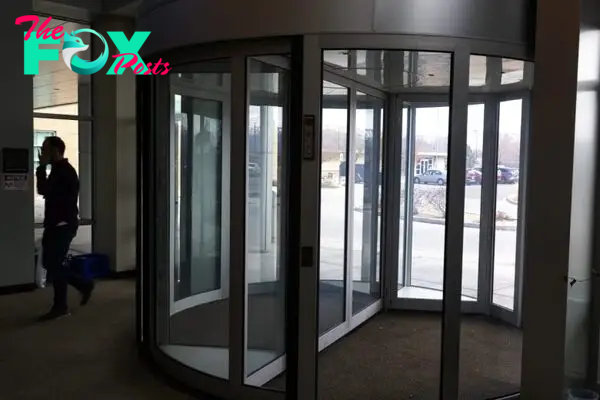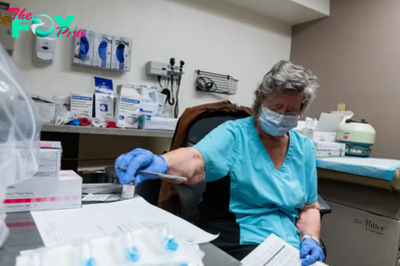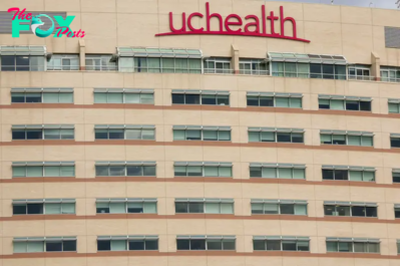Health
Western Colorado psychiatric hospital has “less than 30 days’ cash on hand” before it must close, leaders say
A psychiatric hospital providing mental health and addiction services to people across 23,000 square miles in western Colorado could shut down within weeks if it can’t find the funding it needs to stay open.
Persistent financial challenges, problems hiring staff, intense scrutiny from regulatory agencies and trouble getting paid by insurers could cause West Springs Hospital in Grand Junction to close, facility leaders announced earlier this week.
☀️ READ MORE
Republicans block legislature from asking Colorado voters to let victims of child sex abuse from decades past sue their abusers
Plan to quadruple property taxes on short-term rentals in Colorado fails in late-night Capitol committee vote
Thousands of affordable housing units are at risk in Colorado. A bill would help local governments buy them.
The closure of the hospital would mean the loss of its emergency psychiatric department, a vital resource for law enforcement officers who bring people in crisis there to help keep them out of jails and prisons, the hospital’s online announcement says.
“We have less than 30 days’ cash on hand,” said John M. Sheehan, president and CEO of Mind Springs Health, the owner of West Springs Hospital. “This is the only psychiatric facility between Denver and Salt Lake City. It’s literally providing care in a desert, and if it goes away, patients will die.”
Mind Springs says it needs $6.6 million from the state to stabilize hospital operations and hire additional nursing staff. But state leaders said they have worked with the hospital to help it improve its finances and quality of care, and insurer Rocky Mountain Health Plans says it has given West Springs millions in advance cash payments.
If West Springs closes, its patients would need to drive more than four hours for similar care on the Front Range. Just over 200 staff members would lose their jobs if the facilities close, Sheehan said.
West Springs Hospital has faced problems for years, and has tried to resolve many issues, but financial shortfalls still threaten the hospital’s closure.
A Colorado News Collaborative investigation in 2021 found problems at the state’s 17 community mental health centers including West Springs, which primarily serves 10 northwestern counties but accepts patients from any part of the state.
The investigation found the centers lacked competition, transparency and accountability and that millions of state and federal tax dollars have been unaccounted for, leaving Coloradans in crisis without the mental health care they desperately need.
Colorado hospitals have reported their revenue has declined by billions of dollars because of increased labor costs and other operational expenses that outpace their income, according to a 2023 report by the Colorado Hospital Association.
Each month, spending at West Springs Hospital exceeds income by about $500,000, Sheehan said. This means the hospital taps the profits of Mind Springs Health to cover the shortfall.
Reimbursement problems with insurers are contributing to the hospital’s financial struggles, Sheehan added.
About two years ago, Rocky Mountain Health Plans began denying the hospital’s claims for reimbursement about 20% of the time, up from 9% the years before, Sheehan said.
About 60% of West Springs Hospital’s funding comes from reimbursements from Rocky Mountain Health Plans for people with Medicaid, Sheehan added.
Rocky Mountain Health Plans has provided millions in advance payments to Mind Springs Health and West Springs Hospital to help alleviate the organization’s financial challenges, Jon Fenech, a spokesperson for UnitedHealthcare, wrote in an email Wednesday to The Colorado Sun.
Rocky Mountain Health Plans, which merged with UnitedHealthcare in 2017, is in full compliance with timely and accurate processing of reimbursement claims, Fenech wrote in the email.
Sheehan said West Springs Hospital is currently serving an unprecedented number of indigent patients, who are uninsured or underinsured and have incomes under 300% of the federal poverty level, Sheehan said.

This fiscal year, which ends July 1, West Springs Hospital has provided about $1.4 million in uncompensated care for 357 indigent patients, Sheehan said.
Some of those patients are people who had Medicaid coverage but no longer qualify.
-

 Health16h ago
Health16h agoTeens Are Stuck on Their Screens. Here’s How to Protect Them
-

 Health22h ago
Health22h agoHow Pulmonary Rehab Can Help Improve Asthma Symptoms
-

 Health22h ago
Health22h ago10 Things to Say When Someone Asks Why You’re Still Single
-

 Health2d ago
Health2d agoThe Surprising Benefits of Talking Out Loud to Yourself
-

 Health2d ago
Health2d agoDoctor’s bills often come with sticker shock for patients − but health insurance could be reinvented to provide costs upfront
-

 Health2d ago
Health2d agoWhat an HPV Diagnosis Really Means
-

 Health2d ago
Health2d agoThere’s an E. Coli Outbreak in Organic Carrots
-

 Health3d ago
Health3d agoCOVID-19’s Surprising Effect on Cancer



























